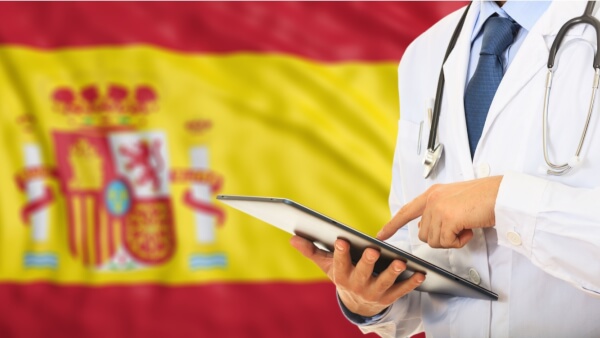Spain’s 100% property tax for UK buyers: Everything you need to know
Plans for new 100% property tax in Spain for UK buyers announced - read this to find out everything you need to know, and what to do next.

There’s lots to think about if you’re planning a move to Spain from the UK, including packing, shipping and finding somewhere to live.
Unfortunately, it also means thinking about the potential tax implications of a move abroad. While you’re looking into this, it’s useful to know about something called the Beckham law.
In this guide for UK expats, we’ll look at what the Beckham law is, how it works and how it may affect you.
And don’t forget, you’ll need a way to manage your money while living in Spain. Open a Wise account and you can send and spend in 150+ countries and hold 40+ currencies at once, including both EUR and GBP.
The Beckham law, also known as Beckham’s law or the Beckham rule, is a tax exemption. It was introduced in order to attract foreign talent, skilled professionals and high-net-worth individuals to come live and work in Spain.
It offers significant tax benefits to anyone who is eligible - we’ll look at the requirements and how it works in just a moment.
If accepted, you’ll pay income tax on Spanish-sourced earnings at a special flat rate of 24% (on a maximum of €600,000 EUR in annual earnings).1
This is instead of paying the progressive tax rates that residents pay, which can soar as high as 47% depending on how much income you earn and where in the country you live.2
💡And why is it called the Beckham law? It’s actually named after the most famous Beckham in the UK, footballer David Beckham - who was one of the first UK expats to take advantage of it when it became law in 2005. Ironically now though, the law has changed so that professional sports players can no longer benefit from it.
The Beckham rule allows you to be considered a non-resident in Spain for tax purposes - even if you live there.
This means you’ll pay a different and flat rate of income tax compared to residents, and you’ll pay tax only on income you earn in Spain rather than worldwide.
Key things you need to know:1
However, you can only benefit from the tax exemption if you meet very particular eligibility criteria.
You’ll need to meet all of the criteria below to take advantage of Beckham’s law and all the tax benefits that come with it:3
The conditions above also apply to your spouse, children or any other dependents who move to Spain with you in the first year of the application.
You’re not eligible if you’re a professional sportsperson, are self-employed (unless you have a digital nomad visa) or you own more than 25% in shares as a company director.3
If you think you meet the eligibility criteria above, you’ll need to submit an application for Beckham law status. Within 6 months of starting work in Spain, you’ll need to apply to the Spanish Tax Agency (AEAT) with the following supporting documents:1
After reading this, you should have a better idea of what Beckham’s law is and whether you’d be eligible to apply. If so, it could mean you pay less tax on your Spanish income while living and working in Spain.
And remember, you’ll need a way to manage your money while living in Spain. Open a Wise account and you can send and spend in 150+ countries and hold 40+ currencies at once, including both EUR and GBP. You can also spend across 40+ countries using the linked Wise card for only a small, transparent fee*.
Sources used:
1. Oyster HR - Support - What is Beckham Law in Spain?
2. Experts for Expats - Spanish Tax Guide for expats and foreign nationals
3. Parakar - Beckham Law in Spain
Sources last checked on date: 16-Apr-2025
*Please see terms of use and product availability for your region or visit Wise fees and pricing for the most up to date pricing and fee information.
This publication is provided for general information purposes and does not constitute legal, tax or other professional advice from Wise Payments Limited or its subsidiaries and its affiliates, and it is not intended as a substitute for obtaining advice from a financial advisor or any other professional.
We make no representations, warranties or guarantees, whether expressed or implied, that the content in the publication is accurate, complete or up to date.

Plans for new 100% property tax in Spain for UK buyers announced - read this to find out everything you need to know, and what to do next.

Read our helpful guide on how to transfer a UK pension to Spain, including the steps, fees and taxes involved.

Find out everything about the highly qualified worker permit in Spain including requirements, benefits and the application process.

Here’s everything you need to know about private healthcare in Spain for expats. Learn about the best providers, costs and more.

A guide to the biggest mistakes when moving to Spain, and some tips on how to avoid them.

Spanish citizenship is one of the most desired ones in the EU. Our comprehensive guide explains how you can obtain it.